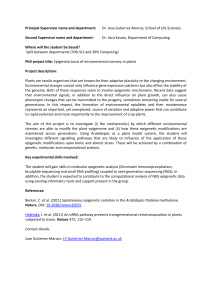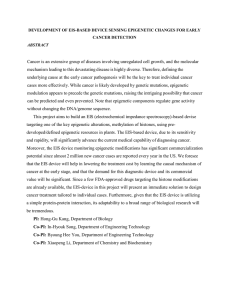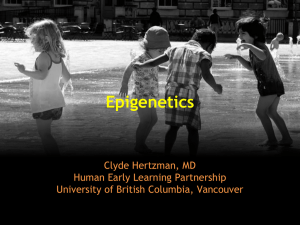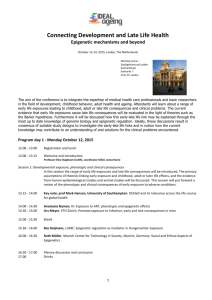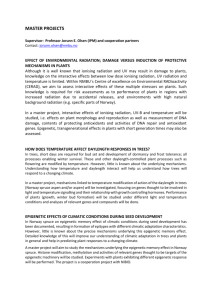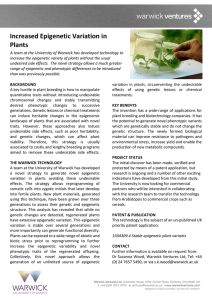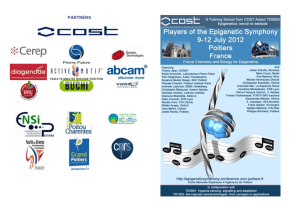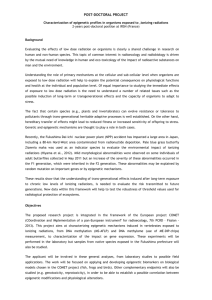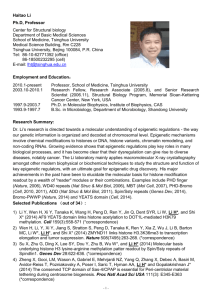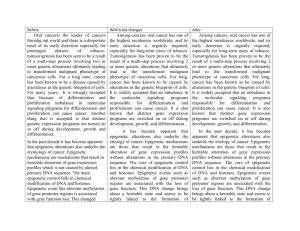Epigenetic regulatory networks of primary brain tumours
advertisement
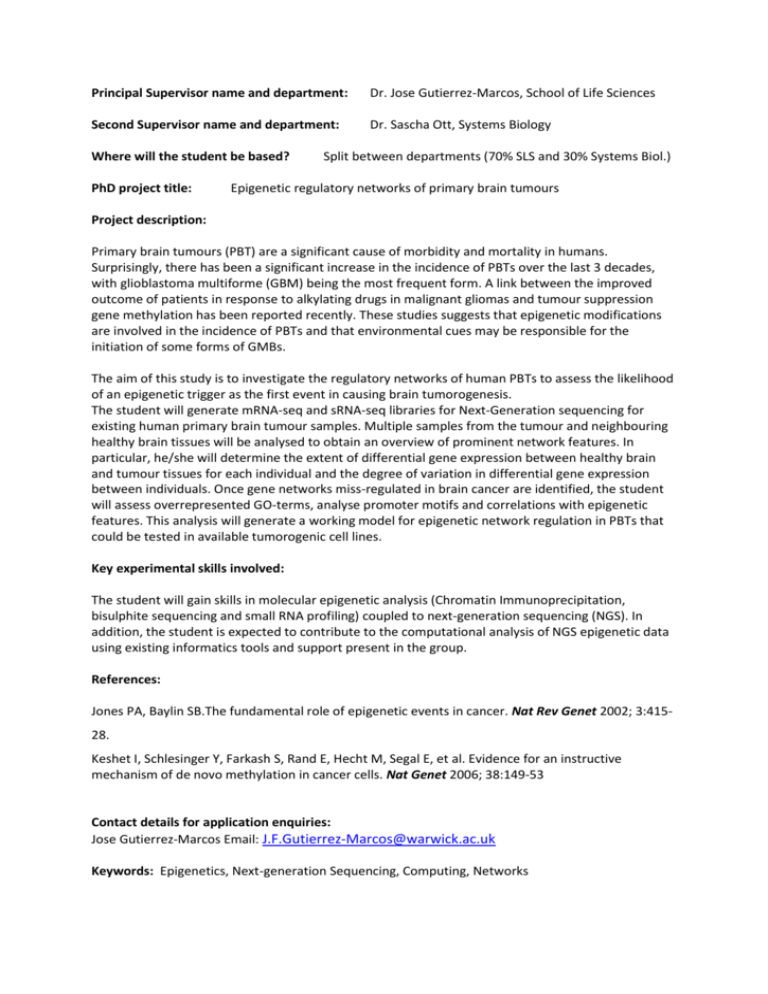
Principal Supervisor name and department: Dr. Jose Gutierrez-Marcos, School of Life Sciences Second Supervisor name and department: Dr. Sascha Ott, Systems Biology Where will the student be based? PhD project title: Split between departments (70% SLS and 30% Systems Biol.) Epigenetic regulatory networks of primary brain tumours Project description: Primary brain tumours (PBT) are a significant cause of morbidity and mortality in humans. Surprisingly, there has been a significant increase in the incidence of PBTs over the last 3 decades, with glioblastoma multiforme (GBM) being the most frequent form. A link between the improved outcome of patients in response to alkylating drugs in malignant gliomas and tumour suppression gene methylation has been reported recently. These studies suggests that epigenetic modifications are involved in the incidence of PBTs and that environmental cues may be responsible for the initiation of some forms of GMBs. The aim of this study is to investigate the regulatory networks of human PBTs to assess the likelihood of an epigenetic trigger as the first event in causing brain tumorogenesis. The student will generate mRNA-seq and sRNA-seq libraries for Next-Generation sequencing for existing human primary brain tumour samples. Multiple samples from the tumour and neighbouring healthy brain tissues will be analysed to obtain an overview of prominent network features. In particular, he/she will determine the extent of differential gene expression between healthy brain and tumour tissues for each individual and the degree of variation in differential gene expression between individuals. Once gene networks miss-regulated in brain cancer are identified, the student will assess overrepresented GO-terms, analyse promoter motifs and correlations with epigenetic features. This analysis will generate a working model for epigenetic network regulation in PBTs that could be tested in available tumorogenic cell lines. Key experimental skills involved: The student will gain skills in molecular epigenetic analysis (Chromatin Immunoprecipitation, bisulphite sequencing and small RNA profiling) coupled to next-generation sequencing (NGS). In addition, the student is expected to contribute to the computational analysis of NGS epigenetic data using existing informatics tools and support present in the group. References: Jones PA, Baylin SB.The fundamental role of epigenetic events in cancer. Nat Rev Genet 2002; 3:41528. Keshet I, Schlesinger Y, Farkash S, Rand E, Hecht M, Segal E, et al. Evidence for an instructive mechanism of de novo methylation in cancer cells. Nat Genet 2006; 38:149-53 Contact details for application enquiries: Jose Gutierrez-Marcos Email: J.F.Gutierrez-Marcos@warwick.ac.uk Keywords: Epigenetics, Next-generation Sequencing, Computing, Networks
